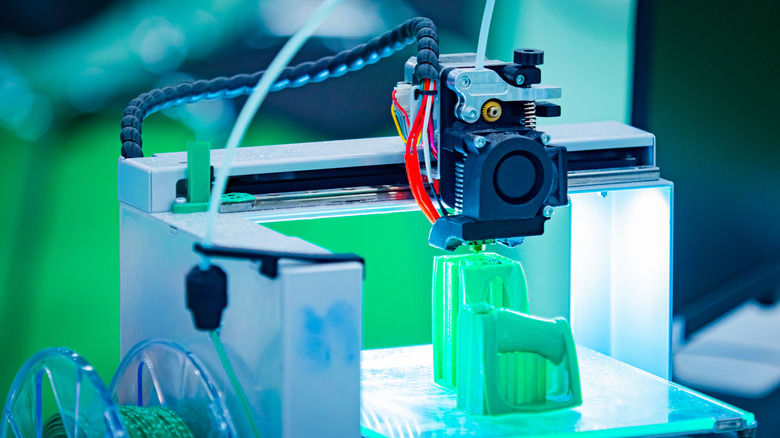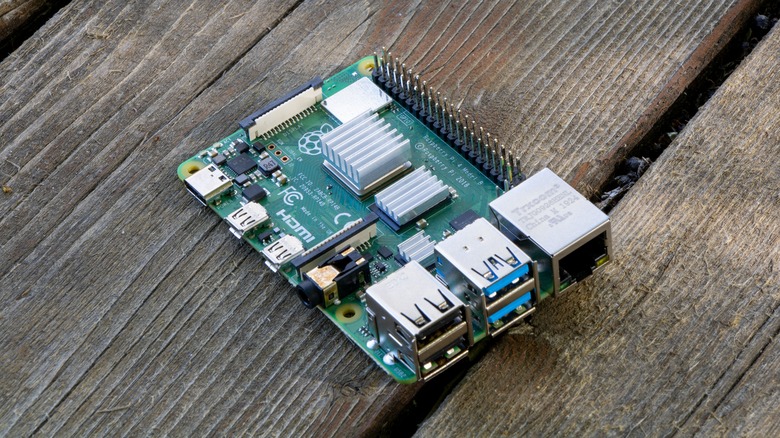
FOTOGRIN/Shutterstock
It’s pretty miraculous that we live in an age where anyone can own and operate their own 3D printer, not to mention do so with fully homebrew hardware and software via a Raspberry Pi. All you need is a bit of technological knowhow, like the differences between 3D print file types and some good websites to grab those 3D print files from. In addition to the hardware and print files, though, you’ll also want to have an interface loaded onto your Raspberry Pi-powered printer, just to make it easier to actually run and manage print jobs.
If you’re looking for such an interface, OctoPrint is a viable choice to install on your Raspberry Pi. It allows you to control just about any aspect of your 3D printer from the comfort of your web browser, it can be easily improved through the use of plugins and extensions, and it’s completely open-source. The only major hitch you need to be aware of is that OctoPrint isn’t wholly compatible with all models of Raspberry Pi. The developers of the software recommend using only certain models in order to ensure the best possible user experience.
OctoPrint recommends Raspberry Pi 3B, 3B+, 4B, or Zero 2

Wirestock Creators/Shutterstock
On the OctoPrint website, the developers of the software recommend that you only install OctoPrint on a Raspberry Pi 3B, 3B+, 4B, or Zero 2. These particular models have the most compatibility with OctoPrint and its features and plugins, so using them will ensure you have the best possible experience when printing objects, managing jobs, and just generally tinkering with your 3D printer.
The developers do note that it’s technically possible to install OctoPrint on models of Raspberry Pi besides the ones listed. However, they caution that doing this could result in poor performance, such as printing artifacts and long load times. These problems could be further worsened if you attempt to install any third-party plugins or hook up an external webcam.
While you might be able to tough out those performance problems, the developers have also advised that you refrain entirely from installing OctoPrint on a Raspberry Pi Zero or Zero W. On these particular models, the performance issues are the most severe, especially when bandwidth is utilized with the wi-fi interface. While it probably won’t break your Raspberry Pi, installing OctoPrint on these two models will almost definitely negatively impact the quality of your prints and your general user experience.